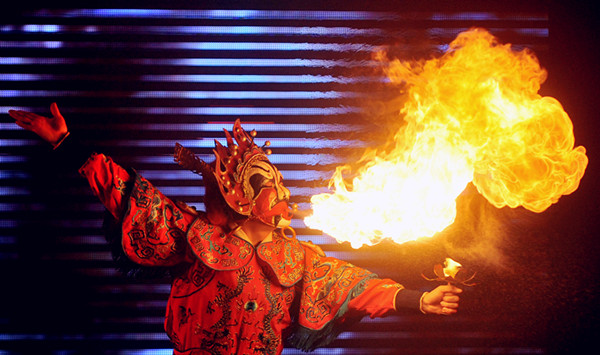

 |
I have a hotelier friend an accountant of all people who, though by no means a Copperfield, is a brilliant magician in his own right and in great demand at parties.
He can light a cigarette by blowing at it or light mine from a distance without any lighter in sight, and make coins pop out of his ears at will but never reveals how he does it.
I'm bound by the code, he says, and his perennial excuse is how boxing legend Muhammad Ali was banished from an amateur magicians' circle for revealing a trick to the public.
So it is with more than a little disappointment that I read on the China Daily website on the weekend that someone was offering to sell the secrets of bianlian, the Sichuan Opera technique of "changing faces", for a measly 3,000 yuan ($380) on a popular auction website called taobao.com.
As if it were some consolation, the online vendor has some caveats: He will teach the tricks only to Chinese citizens, and only to one person in any city. And it comes with a catch: You would have to practise, of course.
Fat consolation.
My fascination with face changing springs from at least two reasons: convenience and cuisine. There is this wonderful restaurant near the China Daily office where I can entertain foreign guests, have a nice meal and not be late for work on the night shift. And the guy has far more ways of changing his faces than Robin Williams has with his voice.
Face changing, to me, is the most accessible aspect of Chinese culture you can fine dine as you appreciate it instead of being stuck in a three-hour opera recital in an auditorium.
I don't want my comfort zone spread around; and totally agree with the famous Sichuan Opera maestro Peng Denghuai, who said: "The art of face changing is a national treasure, not magic. Selling the secret on the Internet disrespects not only face changing but also our cultural heritage."
Taobao.com can follow the example of eBay, which more than once has withdrawn auction items for fear of a popular backlash.

In China, most giant pandas live in the mountains of Qinling, Minshan, Qionglai, Daxiangling and Xiaoxiangling.

By the end of 2011, the number of wild giant pandas in the world was about 1,590.